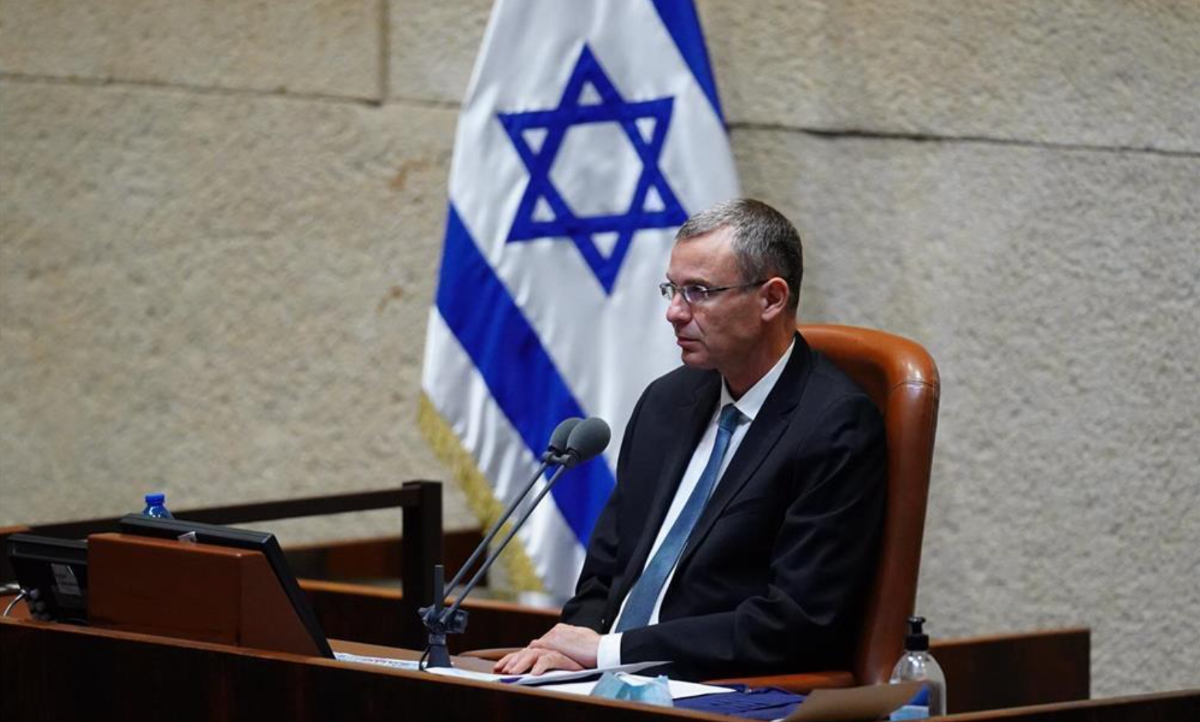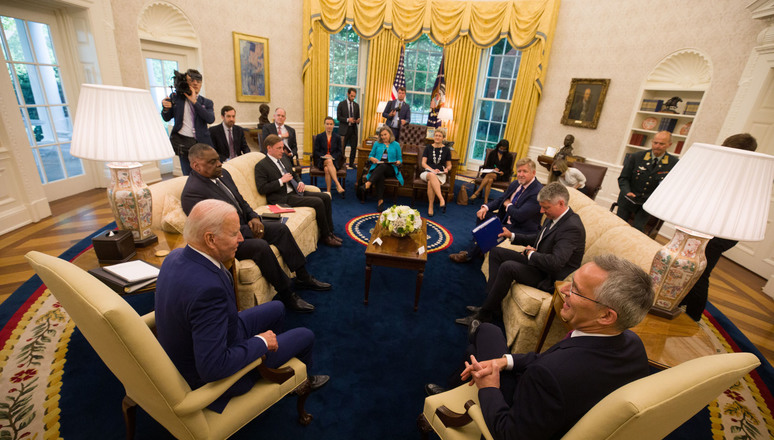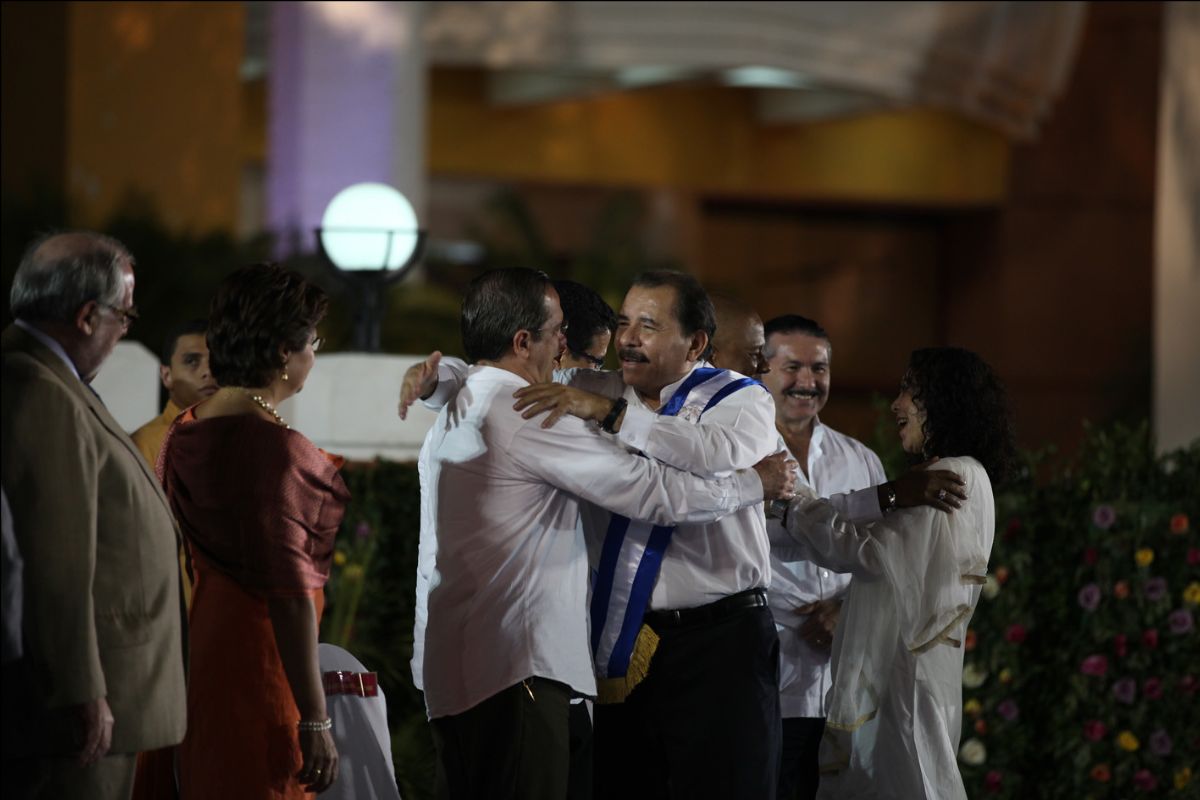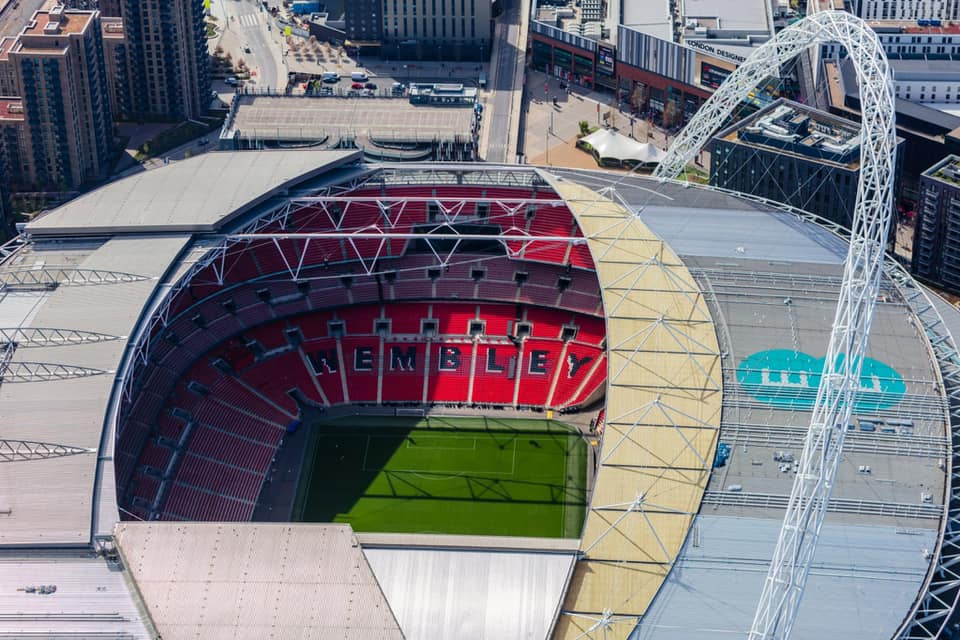Top photo: Wembley Stadium in London will host several UEFA matches during the men’s tournament, including the semi-final and final matches. (Photo: Wembley Stadium / Facebook)
Welcome to Factal Forecast, a look at the week’s biggest stories and what they mean from the editors at Factal. We publish our forward-looking note each Thursday to help you get a jump-start on the week ahead. If this email was forwarded to you, and you like what you see, you can subscribe for free.
A look ahead:
June 11/ UEFA Euro 2020 men’s soccer tournament: The first matches of the UEFA European Football Championship, delayed due to the coronavirus pandemic, will kick off Friday with Turkey and Italy facing off in Rome.
- What’s happened so far: The month-long tournament, which takes place every four years in a European city, was delayed last summer because of the pandemic. Despite many countries still struggling with coronavirus and widespread restrictions still in place, the tournament is going ahead in multiple countries across Europe for the first time in its 60-year history, with 11 cities hosting matches. While France, England and Belgium are among the favorites to win, Portugal could try to secure a second consecutive win after beating France in 2016. Germany, Italy and Spain are also strong contenders.
- The impact: For many soccer fans, this competition will be the first time in more than a year they will be able to watch a match in person. Fans willing to follow their country’s team to different European cities will face some obstacles, with travel restrictions and coronavirus testing requirements in place across many countries. The UK, which currently requires travelers from most countries to quarantine on arrival, will host several matches including the semi-final and final at Wembley, with limited capacity.
June 12/ China’s Shenzhou 12 launch: China is set to send three astronauts into space on Saturday when the country’s Shenzhou-12 spacecraft lifts off from Jiuquan Launch Center in the Gobi Desert. The all-male crew is headed to China’s Tianhe space station module for three months.
- What’s happened so far: China launched the Tianhe space station core module in April and then successfully docked the Tianzhou-2 cargo ship with it in late May, paving the way for Saturday’s crewed mission. While it’s unclear how or if the Tainhe’s large robotic arm will be used by the crew, the mere presence of it has sparked concern. U.S. Army Gen. James Dickinson, who oversees U.S. Space Command, told a congressional hearing last month that the technology “could be used in a future system for grappling other satellites.” China says the 10-meter robotic arm is for construction and maintenance of the Tiangong space station.
- The impact: Since China is not an International Space Station partner, the country has long had aspirations of establishing its own permanently crewed space station. If Shenzhou-12 is successful, it will take the country one step closer to achieving that goal.
June 12/ Algerian legislative elections: Thousands of candidates will compete for 407 seats in Algeria’s first parliament under President Abdelmadjid Tebboune on Saturday. The vote pits pro-government parties against Islamists amid boycotts by most liberals who claim the process is designed to cement authoritarian military-backed rule.
- What’s happened so far: Tebboune dissolved the People’s National Assembly in February in what he said was an effort to implement reforms stipulated in the country’s amended constitution and break ties with former President Abdelaziz Boutiflika, who was ousted in wave of pro-democracy protests led by the Hirak movement. Still, security forces have cracked down on Hirak since then, arresting hundreds of protesters and labeling two of the groups that participated in the rallies as terrorist organizations.
- The impact: With most Hirak supporters sitting out, the race comes down to parties affiliated with Boutiflika and Islamists who are looking to expand their influence by winning a majority of seats and, therefore, the right to form the country’s next government. Regardless of the outcome, lawmakers will have a myriad of challenges, including addressing sluggish economic growth and pressure from pro-democracy activists to crack down on corruption.

June 13/ Israel confidence vote: Israel’s newly formed government coalition faces its first test on Sunday with a vote of confidence in the country’s parliament. If it passes during the special session of the Knesset, the new government will be sworn in.
- What’s happened so far: This crucial vote on the viability of a broad coalition of eight parties follows weeks of bargaining from an inconclusive election result in March. The election failed to produce a majority government and Prime Minister Benjamin Netanyahu, as the leader of the largest party, had the first attempt at trying to secure a coalition agreement to allow him to continue governing. After Netanyahu failed to strike a deal, other party leaders attempted to form a working majority, and in an unexpected twist, Naftali Bennett, the leader of the fifth-place right-wing Yamina party, turned down a deal with Netanyahu and sided with centrist leader Yair Lapid.
- The impact: If the vote passes, the new government will be sworn in and Bennett will become the country’s next prime minister, ending Netanyahu’s rule. Though the vote seems all but decided, the defection of even a small number of legislators could leave the coalition short. If it is successful, this change in leadership may spell trouble for the tentative ceasefire in the Gaza Strip following the increase in violence in May, especially given Bennett’s more right-wing and nationalist rhetoric.
June 14/ Trial of Myanmar’s Aung San Suu Kyi: The trial of deposed Myanmar leader Aung San Suu Kyi will begin Monday and is expected to wrap up by July 26, with the Nobel laureate facing several criminal charges including possessing unlicensed walkie-talkies and flouting coronavirus restrictions during the 2020 elections.
- What’s happened so far: Since the military seized power in February and detained Suu Kyi and other elected leaders, the country has mostly been in standstill due to near-daily protests, a nationwide civil disobedience movement and a devolving armed conflict (members’ link). Almost 850 people have been killed by the military, according to a local monitoring group, and around 4,500 have been arrested. Meanwhile, Suu Kyi has been in house arrest in Naypyidaw, with her lawyers only allowed to meet her twice as her case was delayed for weeks.
- The impact: Suu Kyi’s will also appear in a separate trial beginning June 15, in which she is charged with sedition alongside ousted President U Win Myint and a senior leader for her party, her lawyer said .The judge overseeing Suu Kyi’s trial said the five cases against her will be completed within 180 days. with court sessions held Monday and Tuesday each week. If convicted, Suu Kyi could be banned from running in a future election. A sixth and more serious charge — breaching the colonial-era Official Secrets Act — carries a penalty of up to 14 years of imprisonment.

June 14/ NATO summit: NATO is scheduled to meet in Belgium on Monday as part of U.S. President Joe Biden’s first trip overseas since entering office, and the 30-member alliance has a lot on its plate for the gathering.
- What’s happened so far: Much has changed since the last time NATO held a formal summit in December 2019. The world has gone through a pandemic and the United States elected a new president who has resolutely defended NATO at all steps, breaking from his predecessor. In April, Biden announced a plan to withdraw troops from Afghanistan. NATO is following suit with plans to leave by Sept. 11. The military alliance is also dealing with a new low in its relationship with Russia, following the announcement that the country is deploying 20 more military units to its western border by the end of the year. The summit will also focus on the fallout of Belarus forcing a plane to land, apparently to arrest a well-known journalist.
- The impact: The summit gives the United States a chance to rebuild bonds with the other members of NATO after dealing with President Donald Trump the past four years. It also gives Biden a potential stronger starting point ahead of his summit with Russian leader Vladimir Putin later that week.
June 15/ California to relax restrictions: California Gov. Gavin Newsom has promised a “full reopening” of the Golden State economy Tuesday, but some critics — and opponents in the upcoming recall election — say his efforts won’t go far enough.
- What’s happened so far: While California’s state of emergency will remain in place,capacity and distancing restrictions will be lifted for the lion’s share of businesses and activities. Other states, including Massachusetts and South Carolina, have either rescinded or will soon rescind their own states of emergency as part of a rollback of virus measures, while places like Texas opened months ago to significant criticism. New York state will “be back to life as normal” when 70 percent of residents have received a vaccine dose, Gov. Andrew Cuomo said earlier this week.
- The impact: The loosening of restrictions marks a significant milestone in the pandemic recovery, but with approximately 65 percent of the eligible population in California either partially or fully vaccinated, concern remains over the potential for outbreaks among those who have opted not to get the shot.
June 16/ Biden-Putin summit in Geneva: President Biden will meet his Russian counterpart Vladimir Putin face-to-face in Geneva on Wednesday, for the first time since he took office.
- What’s happened so far: While there’s no high expectations regarding agreements surrounding this meeting — up until recently Putin’s attendance was still up in the air — issues like alleged Russian cyberattacks, tensions with Crimea and the country’s relationship with Belarus are likely to be addressed. The meeting will take place after a European tour by Biden, during which he will meet NATO allies and EU leaders and participate in the G7 in Cornwall, UK.
- The impact: The White House hopes to establish more fluid communications with the Russian government after four years of tension with the Trump administration, in an effort to gain a better perspective of Russia’s intentions and protect American interests. Critical voices, like Ukraine, are interpreting this summit as the United States making concessions to Putin’s power. Biden’s team however, defends it as a way to manage the difficult bilateral relations between both nations.

What else matters:
Crackdown on opposition in Nicaragua: Nicaraguan authorities have arrested at least five opposition figures, including multiple presidential candidates, in the last week as part of a crackdown ahead of November’s general elections, where incumbent President Daniel Ortega is expected to run for a fourth consecutive five-year term. Cristiana Chamorro, a journalist and daughter of a former president, was placed under house arrest on alleged money laundering charges and other crimes. Former Ambassador to the United States Arturo Cruz Sequeira was arrested Saturday for “conspiring against Nicaraguan society” and will be held for three months while his case is investigated. Felix Maradiaga, the pre-candidate for the Blue and White National Unity coalition, was arrested Tuesday for alleged crimes against the government.
- Watch for: The Ortega government’s crackdown is likely to continue leading up to the general elections in November, hinging on a controversial law passed by Nicaragua’s ruling-party dominated Congress in December essentially allowing authorities to unilaterally ban citizens considered “traitors” from running for public office. In response, expect to see both domestic and international outcry grow, with calls growing for a national strike and the United States calling for the freedom of Cristiana Chamorro, whose arrest garnered the most attention due to her reputation as the scion of a well-known political family in Nicaragua.
Burkina Faso violence: At least 160 people, including approximately 20 children, were killed last week after suspected jihadists ambushed Solhan, a village in Burkina Faso’s Sahel area near the border with Niger. No group has claimed credit for the attack, though it is situated within the context of escalating violence perpetrated by groups that claim allegiance to Al-Qaeda and the Islamic State in the Sahel. Government officials in Burkina Faso claimed the attack was carried out by militants aligned with the Islamic State in the Greater Sahara, which is suspected of killing hundreds of civilians in recent months.
- Watch For: The attack is indicative of the difficulty governments in West Africa face when confronting groups aligned with Al-Qaeda and the Islamic State, such as in Niger, Mali, Burkina Faso, Chad and Nigeria. Roughly 8,000 people were killed between 2015 and 2020 in fighting between the militants and these governments as well as clashes among the militants, according to the Pentagon. While governments like Burkina Faso’s have resorted at times to arming civilian militias to fight against the groups, that risks turning villages into targets for the militants. The uptick in violence also presents a challenge to France, West Africa’s former colonial power that partakes in counterterrorism operations throughout the area, particularly as it freezes cooperation with Mali following the country’s military coup.
Extended outlook: What’s on our radar in the coming weeks
June 11: G7 Summit in Cornwall, England; UEFA Euro 2020 men’s soccer tournament
June 12: Algerian legislative elections; Trooping the Colour military ceremony in London
June 13: Confidence vote of Israel’s new government
June 14: NATO summit in Brussels; Aung San Suu Kyi trial in Myanmar
June 15: California to relax many coronavirus restrictions
June 16: Biden-Putin summit in Geneva, Switzerland
June 17: China’s Shenzhou 12 launch planned; Gbagbo returns to Ivory Coast; U.S. Open golf tournament begins
June 18: Iranian presidential election; verdict expected in war crime trial of Liberia’s Alieu Kosiah
June 20: Round 1 of French regional elections; Armenian parliamentary elections
June 21: Ethiopian elections
June 22: New York City mayoral primary
June 24: Gibraltar abortion referendum; Resorts World Las Vegas scheduled to open
June 25: Aruban general election; sentencing for Derek Chauvin
June 27: Round 2 of French regional elections
June 28: Wimbledon tennis tournament begins
July 11: Elections in Moldova
July 23: Tokyo Summer Games

